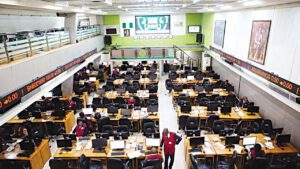
Embrace ESG for global competitiveness — NGX RegCo CEO encourages Nigerian banks
Following Nigeria’s commitment to adopt the International Sustainability Standards Board (ISSB) standards, Ms. Tinuade Awe, the Chief Executive Officer of NGX Regulation Limited (NGX RegCo), emphasised the importance of Nigerian banks swiftly integrating environmental, social, and governance (ESG) principles into their business strategies. Awe asserted that doing so would provide them with a competitive edge in the global market.
This call to action was made during a panel session titled “ESG in the Financial Services Industry: Challenges, Opportunities, and the Next Steps,” held at the 16th Annual Banking and Finance Conference organised by the Chartered Institute of Bankers in Nigeria (CIBN) in Abuja.
Awe highlighted that ESG reporting is a dynamic and significant issue with various global standards and frameworks in place, leading to complexity for both investors and companies worldwide. She emphasised the growing international consensus on the necessity for standardised ESG reporting and suggested that Nigeria’s banking sector could play a pivotal role in adopting and implementing these standards.
“Early adoption of ESG standards, particularly those established by the ISSB, is a critical move for Nigeria, including its banking sector. It ensures consistency, attracts foreign investment, and allows Nigeria to have a voice in shaping its own ESG reporting criteria,” Awe noted.
She further explained the importance of avoiding fragmentation and the opportunity for Nigeria to establish its unique cultural and social identity within the ESG reporting framework, rather than being subject to foreign standards.
Awe also pointed out that the introduction of the European Sustainability Standards by the European Union could have ripple effects beyond the EU, potentially affecting Nigeria. Additionally, she highlighted that the International Sustainability Standards Board (ISSB) is set to implement its IFRS 1 and 2 standards in January 2024.
Furthermore, Awe stressed the necessity of collaboration with relevant institutions to prevent fragmentation and ensure a unified approach to ESG reporting.
“Embracing ESG principles is not only a strategic move for Nigerian banks but also an opportunity for the country to define its role in the global ESG landscape,” she emphasised.



